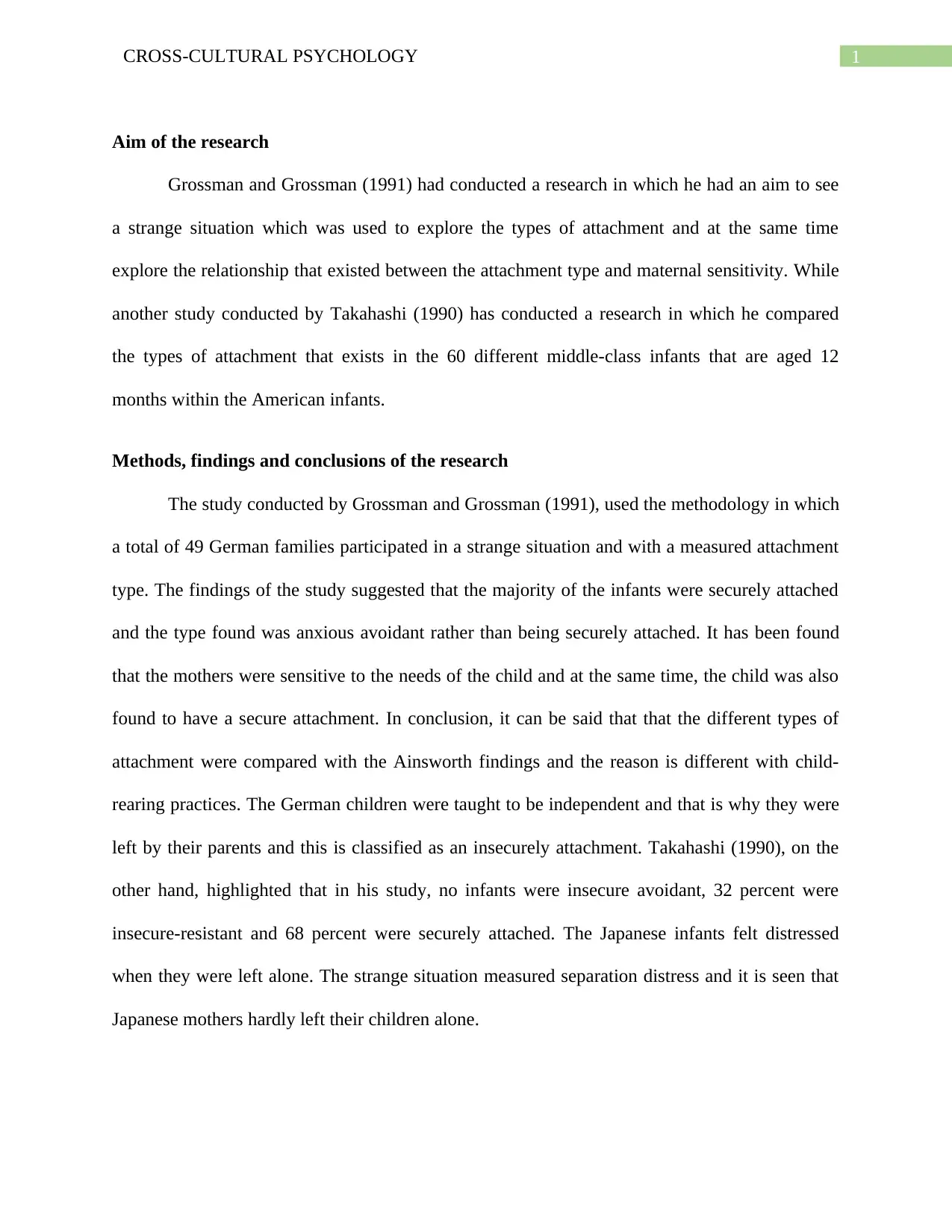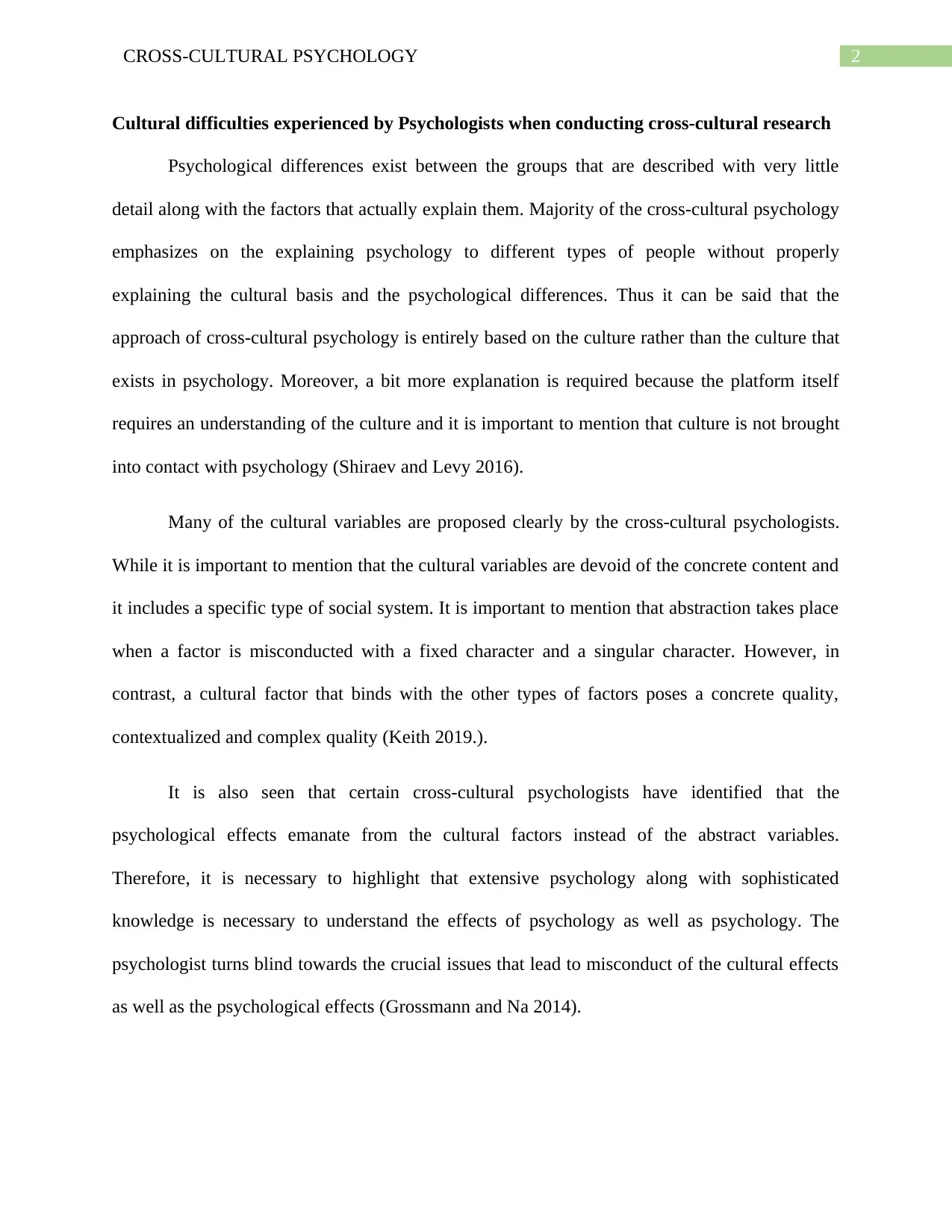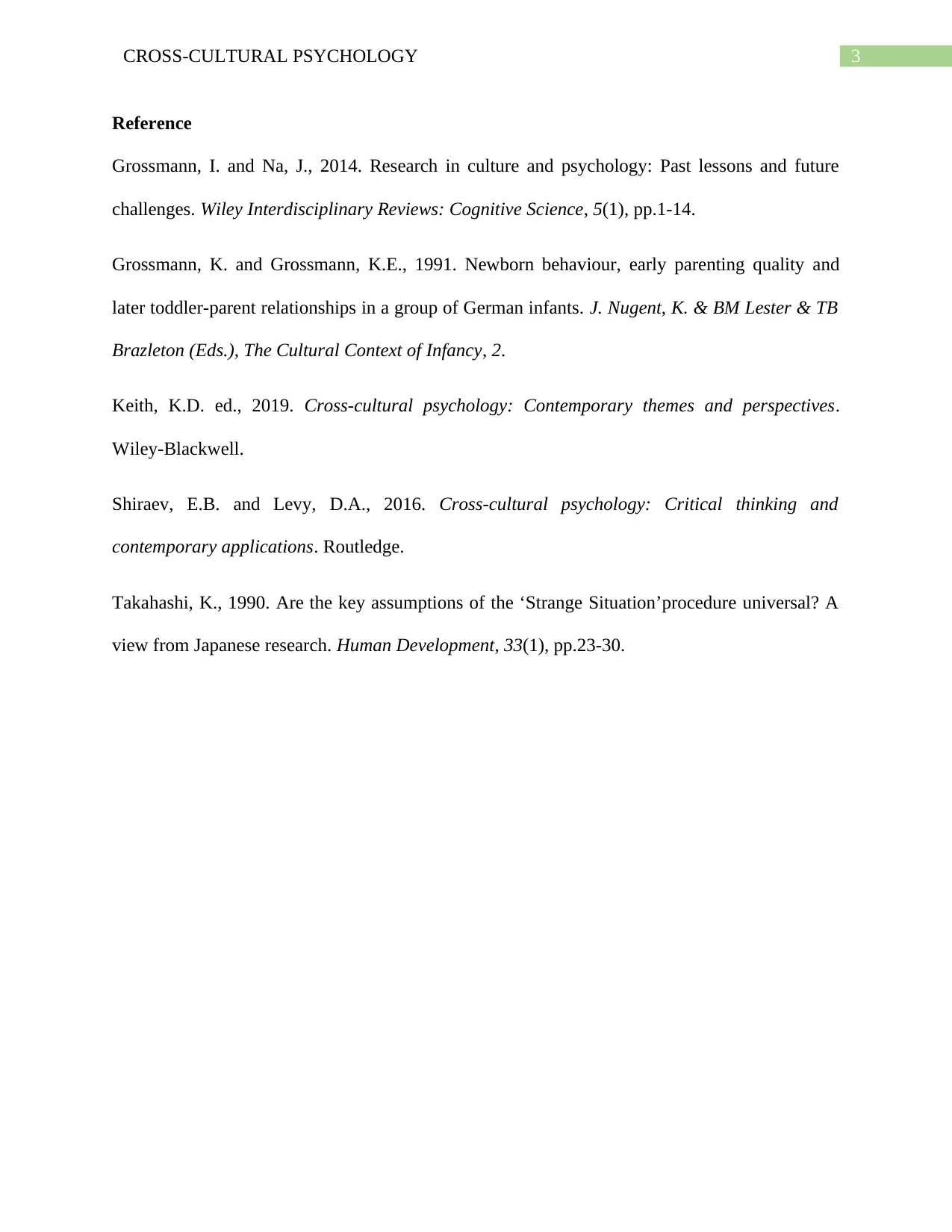Cross-cultural Psychology: Attachment Styles and Cultural Differences
VerifiedAdded on 2022/12/22
|4
|799
|25
Essay
AI Summary
This essay delves into the field of cross-cultural psychology, focusing on research related to attachment styles and cultural differences. It begins by examining studies conducted by Grossman and Grossman (1991) and Takahashi (1990), which investigated attachment types in German and Japanese infants, respectively, using the "strange situation" methodology. The essay highlights the methodologies, findings, and conclusions of these studies, comparing the prevalence of secure and insecure attachment styles across cultures and discussing the role of maternal sensitivity and child-rearing practices. Furthermore, the essay addresses the cultural difficulties encountered by psychologists when conducting cross-cultural research, emphasizing the importance of understanding cultural bases and psychological differences. It critiques the tendency of cross-cultural psychology to sometimes overlook the cultural factors that influence psychological effects, and stresses the need for psychologists to possess extensive knowledge to accurately interpret the interplay between culture and psychology, referencing key sources.
1 out of 4






![[object Object]](/_next/static/media/star-bottom.7253800d.svg)